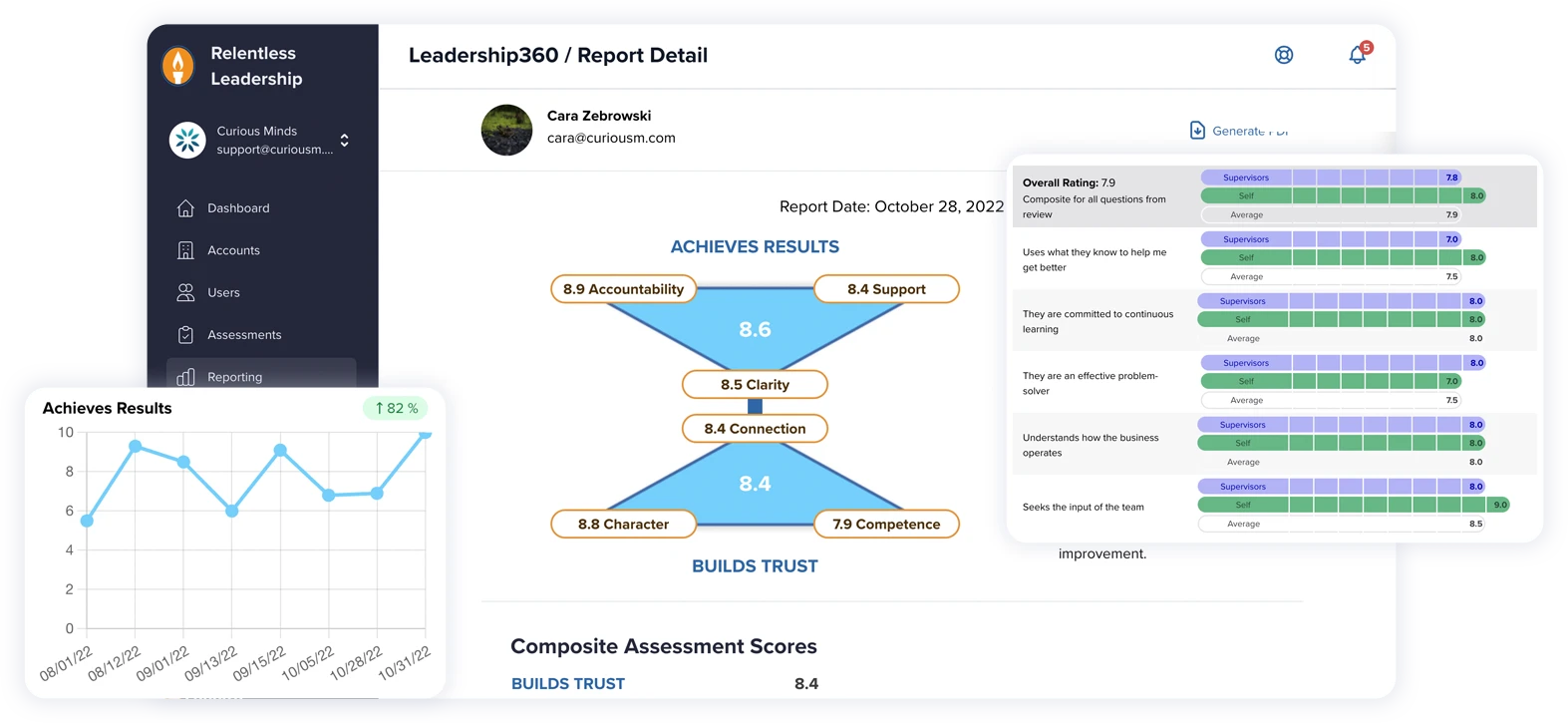A content audit is a must for your website. Think of it as a health check for your site. We dive into everything – your web pages, blog posts, you name it – and figure out what's hitting the mark and what's not. This isn't just busy work; it's about keeping your digital game strong and rolling with the punches as Google keeps tweaking its content rules.
Content audits are your secret weapon when it comes to SEO. They're like having a roadmap that shows how your content lines up with what search engines and your audience are after—Have you ever wondered why your site isn't ranking higher? A thorough audit can spill the beans – maybe it's stale content, keywords that are missing the mark, or some pesky broken links.
Regular content audits help maintain a solid online presence. They are key to keeping up with SEO changes and ensuring your content strategy remains effective. If you still need to consider a content audit, early 2024 is a great time to start.
Benefits of Conducting a Content Audit
Conducting a content audit transforms your website's performance and user experience. By closely examining your content, you can ensure it's valuable and relevant, keeping visitors engaged and improving their journey on your site. This process also helps identify and rectify content that might confuse or frustrate visitors.
Enhancing content quality simplifies site navigation and increases customer satisfaction and loyalty. Plus, it can spotlight areas where your website's design might be improved for a more intuitive user experience.
Here's the kicker – a solid content audit can shoot your site up the search engine rankings. By fine-tuning your SEO strategy – we're talking nailing those keywords, meta tags, and links – you're setting the stage for more traffic and conversions. It's about staying with the latest SEO updates so your site content isn't buried in the SERPs.
Steps to Run an SEO Content Audit
Setting Goals for the Content Audit
Start your content audit by pinpointing exactly what you aim to accomplish. Are you looking to boost website traffic, or is enhancing user engagement more your focus? Setting these well-defined goals directs your audit process, ensuring it syncs with your broader business objectives. These goals must be measurable and achievable, laying down concrete benchmarks that pave the way to success.
Gathering and Inventorying Website Content
Get a lay of the land. The next stage involves creating a comprehensive inventory of all content on your website. This inventory acts as a roadmap for the audit, enabling a systematic review of each content piece. Make a list of everything - each webpage, blog post, product blurb, etc. This step is crucial for understanding the scope and scale of the content you're working with.
Categorizing and Analyzing Content
Once you have your inventory, divide it into groups based on the type of material, the subjects it covers, and how well it does. This sorting helps you find patterns, your content strategy's strengths and flaws, and places where it could be better. It tells you how to make material better for both users and search engines.
Creating Action Items and Implementation Plan
Based on your findings, map out what needs to happen next. This may involve updating or removing content, optimizing for SEO, or restructuring web pages. A detailed plan ensures that the audit's findings are effectively translated into improvements for your website. This plan should be actionable, prioritized, and aligned with your digital marketing strategy.
Elements Analyzed in a Basic SEO Audit
Website Structure Analysis
Take a good, hard look at your site's layout. Is it easy to get around? Is everything where it should be? Evaluating your website's overall structure is a vital part of the audit. It includes assessing the site's hierarchy, navigation, and internal linking. A well-structured website is crucial for user experience and SEO, aiding in easy navigation and efficient search engine crawling. A good structure helps visitors and search engines find content easily, vital for engagement and rankings.
Keyword Usage Analysis
This is all about making sure you're speaking your audience's language. Are your keywords hitting the mark? A comprehensive analysis of keyword usage is essential for effective SEO. This means looking at how well your present keywords are doing, finding holes in your keyword strategy, and finding ways to make things better. Using keywords correctly puts your content on the same page as what people are searching for, which increases your exposure in search results and gets people more involved.
Meta Tags Analysis
Meta tags, like title tags and meta descriptions, are the unsung heroes of SEO. They're your website's first handshake with search engines and users alike. Analyzing these ensures they're not just filling space but working hard to catch the eye in search results and tempt click-throughs. It's like making sure your storefront sign is both eye-catching and informative. If done right, these well-polished meta tags can be a game-changer, significantly upping the odds of your content standing out and drawing clicks in the crowded online marketplace.
Basic Technical Issues Analysis
Regarding the technical side - you need to make sure your website is up to speed – literally. Fast loading times are a must; nobody likes waiting around, just like no one enjoys a slow elevator. Then, you've got to fix any broken links – they're like dead ends on a road trip, leading you nowhere. And let's not forget to make your site mobile-friendly. Addressing these tech basics in an SEO audit is essential. It's about making your website not just presentable but welcoming and efficient for both your visitors and search engines.
Understanding Google's Algorithm Changes for Relevancy
With Google frequently changing its algorithms, staying on our toes is essential. Their latest updates focus on rewarding sites that offer top-notch, valuable content. Keeping up with these changes is crucial for a sharp edge in SEO. These updates enhance user experience by spotlighting high-quality and relevant content. So, understanding and adapting to these shifts is key to fine-tuning your SEO strategy.
Here's a breakdown of what Google's recent algorithm updates are zeroing in on:
Content Quality and Relevance - Google is putting a premium on original, well-researched content that genuinely benefits readers. This type of content that deeply addresses user questions provides meaningful insights, is well-informed, and tends to climb higher in search rankings. This emphasis on substantive quality ensures that users get reliable and informative content, elevating their search experience.
User Experience (UX) - Websites that deliver a smooth and user-friendly experience are getting the thumbs up in search rankings. This includes ensuring your site is mobile-responsive for a great viewing experience across devices, having clear-cut navigation for easy user journeys, and quick loading times to keep user interest peaked and bounce rates low. These aspects collectively ramp up your site's overall appeal to visitors and search engines.
Google's E-E-A-T (Expertise, Experience, Authority and Trust) - is important for ranking content. This goes beyond just YMYL which involve money or life issues. It shows how important it is to have information written by experts and reliable sources. This makes sure that the facts are correct and trustworthy, especially when they can greatly influence what people think or decide.
Resources and Tools for Content Audits
Ready to get auditing? There's tools out there like Google Analytics, SEMrush, Ahrefs, and Screaming Frog to help you. These tools are designed to analyze your content's performance and SEO metrics.
Using these tools is a game-changer. They streamline the audit process, making it more efficient and way more effective. They're like having a personal assistant who gives you all the insights you need on how your content is doing, which is super important for making wise choices during your audit.
Templates and checklists can streamline the content audit process, ensuring a thorough and organized approach. They help you stay thorough and organized, covering every crucial aspect of the audit. They're perfect for keeping you on track, ensuring that you don't miss anything and that each piece of content is measured against your goals and standards.
Importance of Hiring a Professional for Content Audits
Hiring a professional for content audits offers several advantages. Their expertise in SEO, user behavior, and the latest industry trends ensures a thorough and effective audit, uncovering potential issues and opportunities. This can lead to improved SEO performance, increased traffic, and higher conversions. Additionally, their audit efficiency saves time and resources, while their knowledge helps avoid common pitfalls and ensures best practices are followed for optimal results.
How Curious Minds Media Can Help with Your Content Audit
Looking for some assistance with your content audit? Well, look no further! Curious Minds Media is here to lend a hand. We're all about providing top-notch SEO services, including comprehensive content audits. We're big believers in custom-fit solutions – because we know one size never fits all.
We're all about making our content audit services fit your needs. We take the time to learn about your business, your customers, and your goals. Armed with this info, we put together strategies that are not just relevant but super effective. Our goal? To drive results that perfectly sync with your overall marketing game plan and boost your online presence.
Encouragement to Take Action and Plan for 2024
As we start 2024, revisiting your SEO plan is important. Now is the time to take action and get your website noticed this year. Curious Minds Media is ready to assist you in helping you reach your digital marketing goals. So let's do this!



















